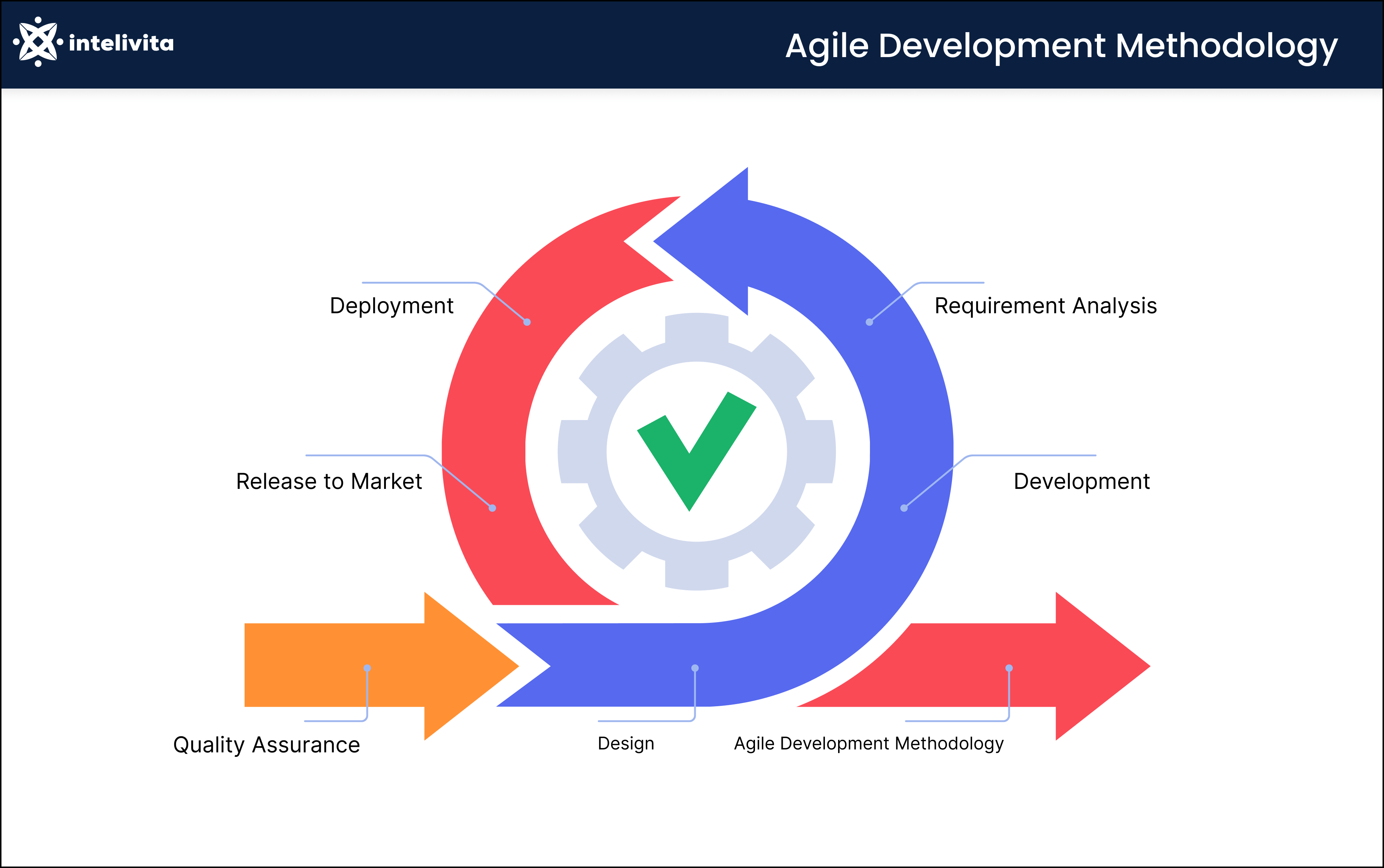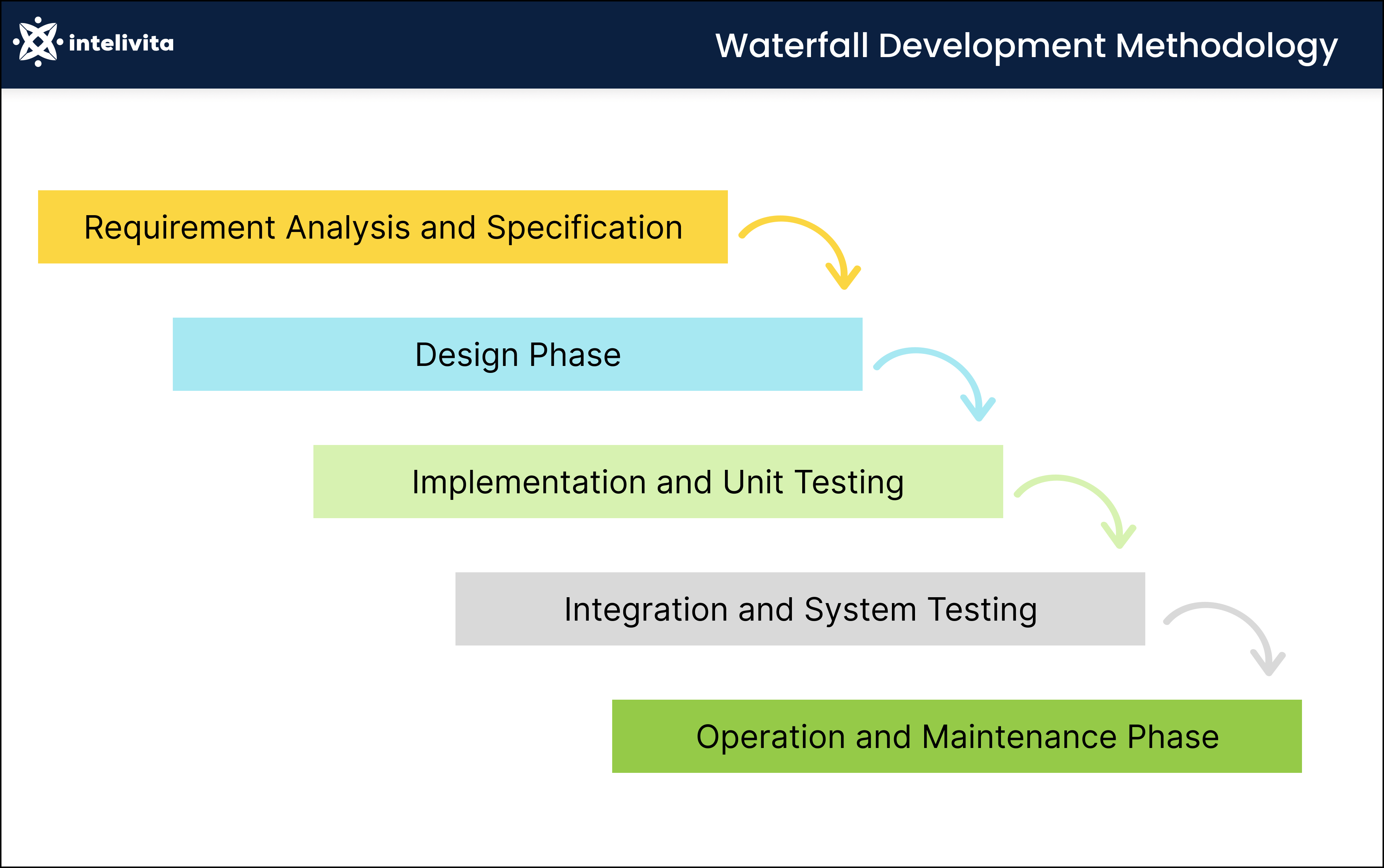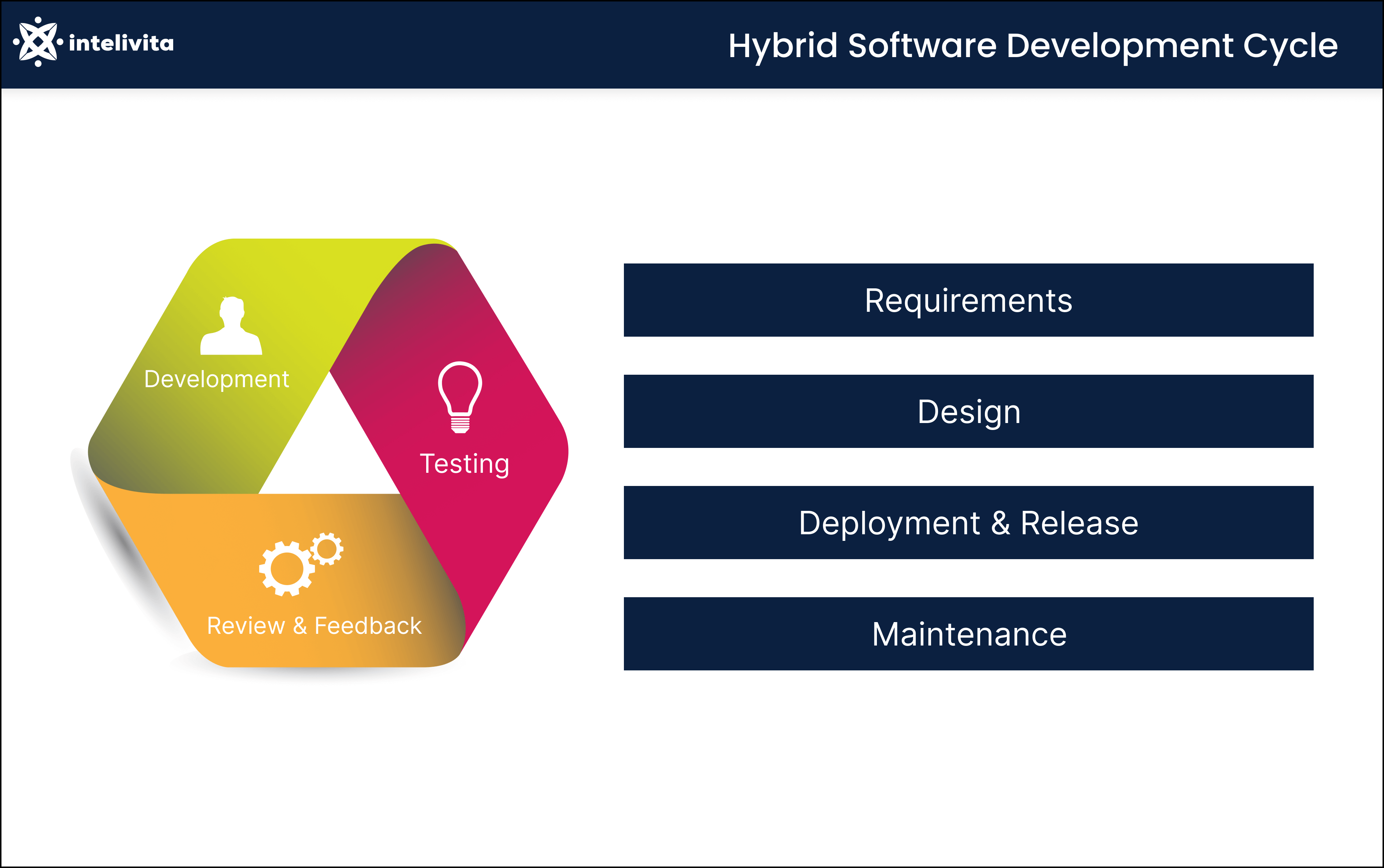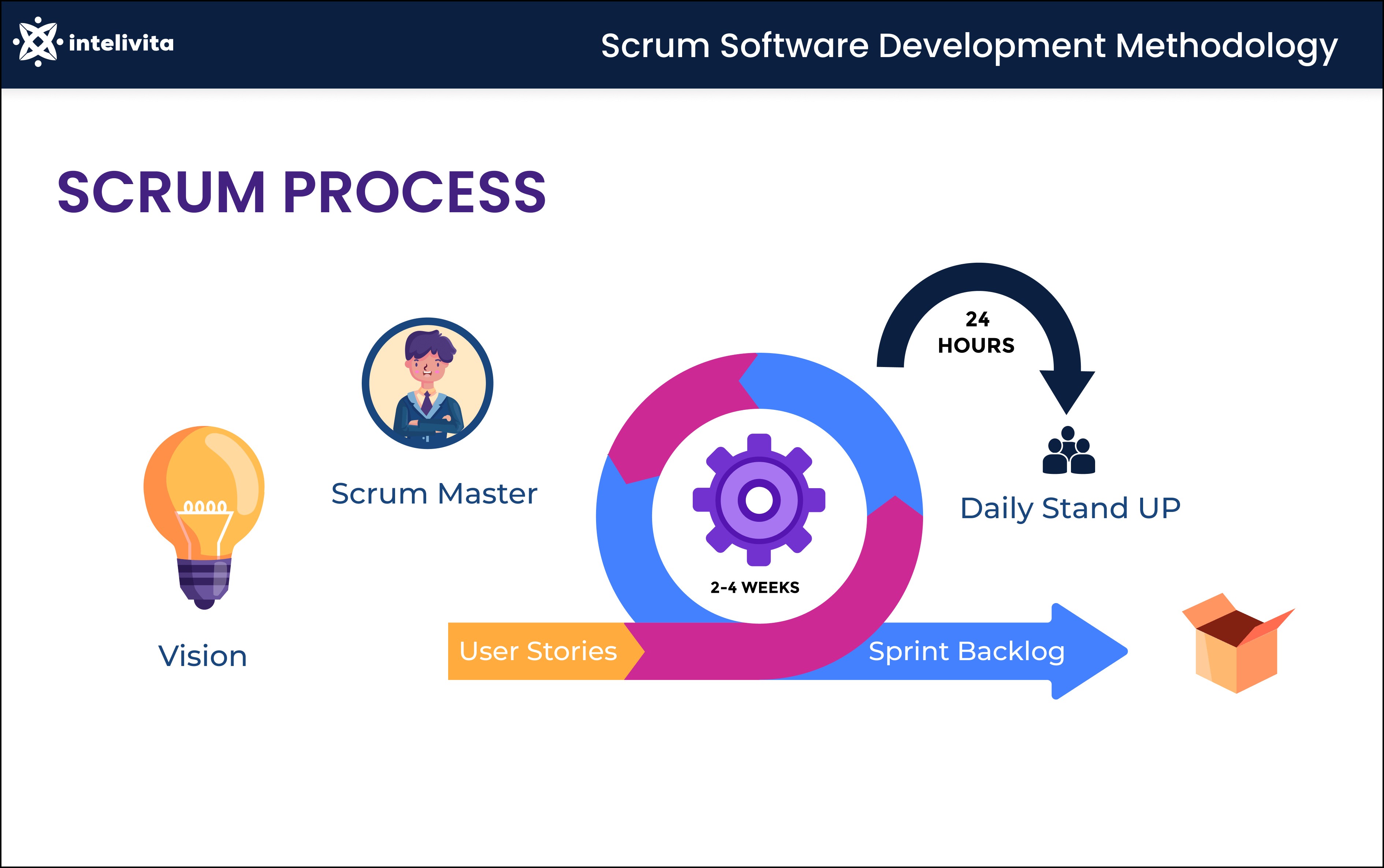Are you in search of reliable, scalable, and efficient software development?
Or do you want to improve your software development process with assured quality? – If yes, then go through this blog.
Various software development methodologies have been introduced for many years.
Yet, did you know the intention behind it?
Simple to help you create seamless project management.
However, there aren’t one-size-fits-all software methodologies for every software development service.
Cross-functional development teams have to go through different software development phases.
Key Takeaways:
Various methodologies assist in smoothly managing your Software Development Life Cycle (SDLC).
Methodologies apply engineering principles to produce reliable, maintainable, and high-quality software products.
A development methodology reduces inefficiency and handles changes more accurately.
Worldwide spending on IT enterprise software is expected to exceed $755 billion by the end of 2023.
Most of these expenses go to software development companies seeking optimized and advanced methodologies.
In this article, we’ve discussed software development methodologies and highlighted the top 5. We believe Intelivita is the ideal choice for your project.
Let’s delve into the crux of the article:
What are Software Development Methodologies?
The software development methodology is a structured approach or framework that guides the software creation process.
These software methodologies provide software engineers with a well-defined framework to improve efficiency, quality, communication, and overall project success.
Moreover, software development methodologies are also called software engineering methodologies because they apply engineering principles to developing software.
The software development phases contain different formats, approaches, and techniques to help go:
- It helps to organize the entire workflow effectively.
- Minimizes project timeline.
- Reduces the cost required for building software.
- Track the entire development process.
- Provide a set of clauses for better communication.
- Test and improve the quality of final products.
So, knowing the definition of software development methodology, let us move to the next section, where we discuss the top 5 software development methodologies.
Let us help you choose the suitable software methodology for your software project. We have experts to guide you.
Top 5 Types of Software Development Methodologies
Each software methodology has different capabilities and elements that help software engineers in the stages of SDLC.
Hence, choosing the best software methodology that consists of agile practices for specific types of software development might be challenging.
Therefore, we crafted a detailed comparison of software methodologies to gain a deep understanding and ensure the successful completion of software development.
1. Agile Development Methodology
Agile development methodology is a software development method used to create a disciplined software management process.
It provides a structured framework for software engineers and development teams to plan, design, implement, test, deploy, and maintain software products efficiently and effectively.
Agile divides the project into small, manageable increments called “sprints” The sprint planning is done effectively, which lasts 2-4 weeks. Besides, each sprint delivers a usable portion of the software.
It allows continuous improvement and adaptation in software development.
Scrum, Kanban, and Extreme Programming (XP) are a few approaches in the agile framework.
These approaches strongly emphasize collaboration, iterative development, customer input, and flexibility in response to the shifting requirements of software development.
Advantages and disadvantages of agile software development:
Advantages |
Disadvantages |
|
|
2. Waterfall Development Methodology
The waterfall development methodology is a traditional and linear software development approach.
In this methodology, the software development process is divided into sequential phases, and each phase must be completed before the next one begins.
Due to its structured and very inflexible nature, this approach is often used for projects where predictability, documentation, and regulatory compliance are critical.
The projects include industries like aerospace, healthcare, and government.
The advantages and disadvantages of waterfall development methodology:
Pros |
Cons |
|
|
3. Hybrid Methodologies
Hybrid methodologies combine waterfall, agile, and Scrum approaches to create flexible software development processes.
Hybrid methodology aims to leverage different methodologies’ strengths while mitigating their weaknesses.
It allows organizations to tailor their software development approach to meet specific project requirements effectively.
Advantages and disadvantages of hybrid methodology:
Advantages |
Disadvantages |
|
|
4. DevOps Development Methodologies
DevOps combines development (Dev) and operations (Ops) teams to create software through a collaborative and integrated approach.
The primary objective of DevOps is to make the software development lifecycle more efficient by automating repetitive tasks, continuous integration, continuous deployment, and reducing the time to deliver the app.
So, DevOps methodology is the best choice if you want to develop quick, customized e-commerce, healthcare, or banking and finance applications.
Due to its quick adaptive principles and continuous integration and deployment feature, it helps you develop customized apps quickly.
Here are the advantages and disadvantages of DevOps:
Advantages |
Disadvantages |
|
|
5. Scrum Software Development Methodology
Scrum is a popular agile framework in software development for managing and delivering complex projects. It offers a structured and iterative approach.
It is a lightweight, iterative, and incremental methodology emphasizing collaboration, transparency, and adaptability.
Scrum methodology is well-suited for projects with constantly changing requirements, where frequent feedback and customer involvement are essential.
Here are the advantages and disadvantages of scrum software development:
Advantages |
Disadvantages |
|
|
How to Choose the Right Software Development Methodology
So, these are the top 5 software development methodologies; however, if you want to choose one from these top 5 methodologies, you should consider the following factors:
- Evaluate your business requirements.
- Clearly define your software development goals and objectives.
- Consider the project timeline.
- Evaluate your organization’s risk tolerance.
- Consider budget limitations and cost-control requirements.
Consider the factors outlined above while choosing a software development methodology.
Furthermore, opt for the methodology that best aligns with your project’s specific criteria, helping you customize your application to meet your needs and demands.
Looking for Agile Software Development for Your Business?
You have understood the top 5 software methodologies with their advantages and disadvantages.
Going through this blog, you have a clear idea of which methodology best fits your software development.
However, contact best software development company, if you still need clarification about choosing the correct methodology.
They help you choose the right software methodology that enables you to create software that caters to your needs and requirement.











